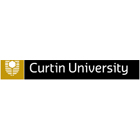Bachelor of Education (Primary Education)
Bachelor of Education (Primary Education)
Primary school teachers educate children in years 1–6 across the range of Australian curriculum learning areas. This initial teacher education degree provides the qualification required to teach primary school students in the Australian Government, Catholic and Independent school sectors. Graduates are eligible for registration as a teacher in all Australian…
Categories
COURSE DESCRIPTION
Primary school teachers educate children in years 1–6 across the range of Australian curriculum learning areas.
This initial teacher education degree provides the qualification required to teach primary school students in the Australian Government, Catholic and Independent school sectors. Graduates are eligible for registration as a teacher in all Australian states and territories, and in countries that recognise Australian teaching qualifications.
The course takes a student-centred approach to teaching and learning, encouraging analytical and critical thinking. Core education units comprise the bulk of this degree, but you will also select three units that allow you to specialise in an offered area of the primary school curriculum.
As part of the course, you will complete four professional work experience placements in schools. These placements are undertaken in full-time blocks, regardless of your study mode. You may have the opportunity to undertake a rural, interstate or overseas placement.
Professional recognition
Curtin’s Bachelor of Education is recognised nationally as an initial pre-service teaching qualification.
Career information
Careers
Primary school teacher
Curriculum designer
Policy development officer
Education administration officer
Trainer, mentor or coach
Special programs officer
Industries
Primary education (government and non-government)
Early education (government and non-government)
What you’ll learn
- Apply high-level discipline knowledge, principles and concepts associated with effective teaching of primary school students
- Draw from theory and research to apply knowledge of the needs of students from diverse backgrounds and across the full range of abilities to enhance learning
- Assess student learning and analyse diverse sources of data to support valid judgements of student learning
- Plan and deliver effective teaching and learning experiences with demonstrated impact.
- Use technologies appropriately for learning and teaching
- Engage in professional learning and demonstrate capacity for leadership; demonstrate personal literacy and numeracy competencies to the required accreditation standard
- Engage in critical and reflective practice based on local, national and international research
- Create and manage positive learning environments for all students, including those from diverse cultural backgrounds.
REQUIREMENTS
Students from different countries should have qualifications equivalent to Australian Year 12 and a scaled mark of at least 50 in English, Literature, or English as an Additional Language or Dialect.
IELTS (International English Language Testing System) – Listening 8.0, Reading 7.0, Writing 7.0, and Speaking – 8.0; Overall band score 7.5
EDUCATIONAL INSTITUTION
Curtin University is Western Australia’s largest and most culturally diverse university with Australia’s third largest international student population. Around 60,000 students from more than 130 countries study a Curtin degree, at locations including Perth, Margaret River, Kalgoorlie, Sydney, Malaysia and Singapore. Our cultural diversity adds a rich and valuable dimension to the campus atmosphere, preparing all graduates to live and work effectively in an increasingly global environment. We offer a range of industry-aligned undergraduate and postgraduate courses in business, humanities, health, engineering and related sciences. We also have a long-standing focus on Aboriginal and Torres Strait Islander education and culture, supported by our Centre for Aboriginal Studies.Curtin is widely recognised for its practical research that is focused on solving timely, real-world problems. In recent years our research activity has grown significantly, driving our rapid rise up the international university rankings.As a university that never settles, we will continue to develop existing partnerships and establish new ones in areas relevant to our research and teaching.




